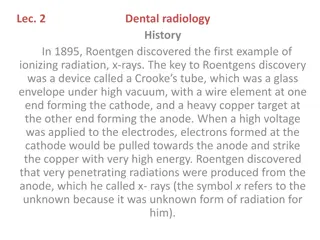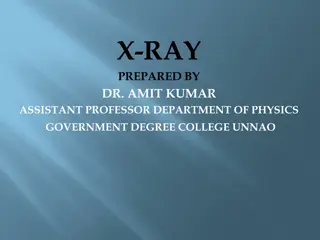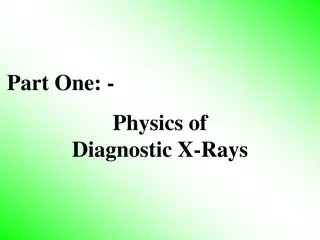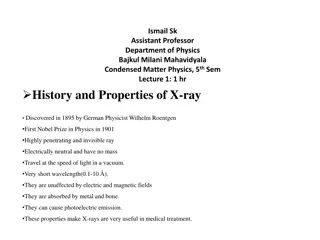Evolution of Dental Radiology: From Roentgen's Discovery to Modern X-ray Machines
In 1895, Roentgen discovered x-rays using a Crooke's tube, marking the beginning of dental radiology. This technology evolved over time, leading to the development of modern dental x-ray machines with control panels and specialized parts like the tube head and extension arm. The components such as t
0 views • 34 slides
Understanding X-Ray Radiation: A Comprehensive Overview
X-ray radiation, discovered by Wilhelm Conrad Roentgen in 1895, is a high-energy electromagnetic radiation with a frequency range of 3.10^16Hz to 3.10^19Hz and a corresponding wavelength range from 0.01nm to 10nm. This form of radiation has applications in various fields, and its properties make it
0 views • 15 slides
Introduction to the Physics of Diagnostic X-Rays
The discovery of X-rays by W.C. Roentgen in 1895 was accidental, leading to a groundbreaking advancement in the field of radiology. X-ray photons are part of the electromagnetic spectrum and have applications in diagnostic radiology, radiation therapy, and nuclear medicine. The production of X-ray b
0 views • 30 slides
Exploring the History and Properties of X-rays in Condensed Matter Physics
X-rays, discovered by Wilhelm Roentgen in 1895, are highly penetrating rays with unique properties such as electrical neutrality, masslessness, and the ability to travel at the speed of light. They are valuable in medical treatments due to their absorption characteristics and ability to cause photoe
0 views • 4 slides



